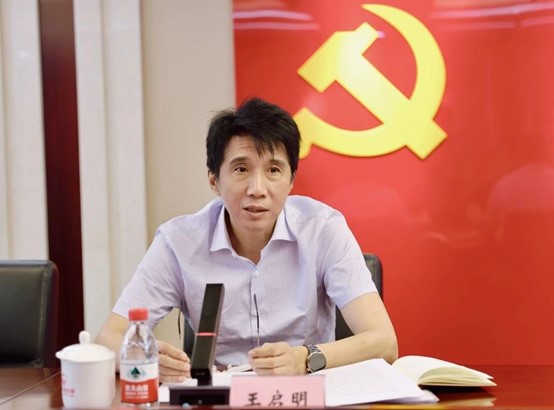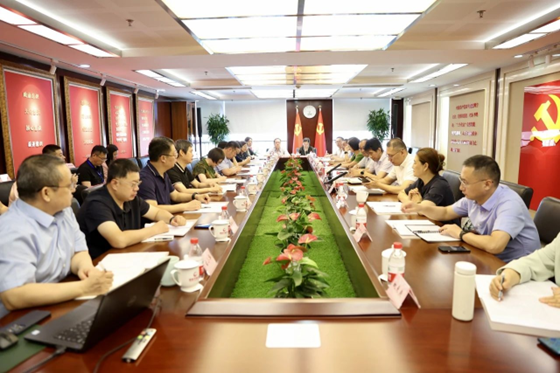 The recent meeting of the OUC's 4th Academic Degree Evaluation Committee, its 4th session, focused on reviewing the degree awarding process for the spring semester of 2024.
The recent meeting of the OUC's 4th Academic Degree Evaluation Committee, its 4th session, focused on reviewing the degree awarding process for the spring semester of 2024.


Wang Qiming, secretary of Party Committee and president of the OUC, who also serves as chairman of the Academic Degree Evaluation Committee, attended the session, with 21 committee members including Guo Liyun in attendance. Li Song, who holds the positions of Party Committee member, vice president of the OUC, and vice chairman of the Academic Degree Evaluation Committee, presided over the meeting. Heads of relevant academic departments and the Academic Affairs Department at the headquarters were present as observers. The committee deliberated on reports submitted by each sub-committee concerning degree approvals, denials, and other academic matters.
This semester, a total of 3,864 undergraduate graduates applied for the bachelor’s degree. Following the review and voting process, the Academic Degree Evaluation Committee decided to award the OUC’s bachelor’s degrees to the 3,245 graduates.
Wang Qiming emphasised that over the past 45 years, the OUC has made an irreplaceable historical contribution to China's economic and social development and has played a significant role in the popularisation of higher education. Moving forward, the OUC must concentrate on building China into a leading educational power and a society dedicated to lifelong learning, seizing opportunities to deepen reforms and effectively enhance the quality of open education throughout all stages. He outlined four key requirements for promoting the high-quality development of open education degree work:
1. Implement the Degree Law to drive the standardisation and legalisation of degree work. The essence and significance of the Degree Law should be thoroughly studied, and its systematic and regulatory requirements deeply understood. This will enable the OUC to strengthen the construction of the degree quality assurance system and enhance the management of quality across the entire process, including enrolment, cultivation, and degree awarding. The OUC should actively seek breakthroughs in the field of open education degree work.
2. Deepen educational and teaching reforms to cultivate high-quality applied professionals. Open education should be firmly grounded within the broader context of lifelong and vocational education, focusing on the cultivation of applied professionals and distinctive development. The OUC must implement robust reform measures to drive comprehensive transformation across all elements of education and teaching in open education.
3. Accelerate digital empowerment to create new momentum for the high-quality development of degree work. Embracing the digital education strategy, the OUC should position itself as a pioneer in digital education practices, leveraging digital technologies to enhance the comprehensive management of degree work throughout its entire lifecycle.
4. Strictly adhere to quality standards to promote the simultaneous improvement in both quantity and quality of degree applications. The OUC must rigorously manage the entire process of degree awarding, focusing on critical stages such as thesis proposal, mid-term assessment, review, defence, and degree evaluation, refining processes, assigning responsibilities, conducting in-depth research, strengthening system coordination, and fostering experience exchanges, thereby leading and driving the simultaneous enhancement of the open education degree work in both quality and quantity.
During the meeting, the committee members engaged in thorough discussions and exchanges on further elevating the quality of the degree work at the OUC. They provided valuable feedback and suggestions on the current issues in degree thesis writing and proposed plans for future work.
Written by Zheng Xubing, photos by Zhuge Huanyu, OUC